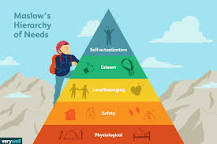SUMMATIVE KEY CONTRIBUTORS
1/29
Earn XP
Description and Tags
Name | Mastery | Learn | Test | Matching | Spaced | Call with Kai |
|---|
No analytics yet
Send a link to your students to track their progress
30 Terms
Aristotle
naturalist
aquisition of knowledge
humans are governed by rules
Descartes
free-will
I think therefore I am
dualism
John Locke
Nature vs Nurture
blank slate theory (tabula rosa)
Phineas Gage
survived pole through skull
extreme changes to personality
insight into brain function
Wilhelm Wundt
structuralism
“birth of psychology” - Germany
elements of mind
“ingredients of consciousness”
Edward Titchner
structuralism
“birth of psychology” - Germany
made the first psychology lab
Hippocrates
the father of modern medicine
psychology is linked to the body
William James
Functionalism - study behind what we do
humans have certain traits and behaviors
Edward Thorndike
operant conditioning (punishment vs reinforcement)
positive vs negative punishments / reinforcements
Ivan Pavlov
Behaviorism
classical conditioning
dog salvation experiment
laid foundation for watson
Mary Whiton Calkins
self-psychology
the conscious self should be the primary focus of psychology
Margaret Floy Washburn
animal behavior
sensation and perception
Sigmund Freud
psychodynamic psychology
our childhood heavily impacts us throughout our life
psychosexual stages of development
John Watson
NURTURE
operational conditioning
law of effect
BF Skinner
expanded on Law of Effect
association with repeating or lessening behaviors
different rates based on changing the reinforcers and punishments
Carl Rogers
founder of person-centered psychotherapy
Abraham Maslow
hierarchy of needs

Jean Piaget
Swiss developmental psychologist
looked at children in an active way as explorers
developed 4 stages of development
sensorimotor / preoperational / concrete operational / formal operational
Legacy
important to process of childrens thinking
individual differences in developmental process
Erik Erikson
8 stages of life that coincide with a specific psychological struggle
Charles Darwin
genetics and evolution play a role in human behavior
Robert Sapolsky
can’t think in buckets
everything comes back to biology
biopsychosocial lens
Richard Thaler
Nudge theory
behavior changing
anchoring / availability
status quo bias
V.S. Ramachandran
experiments and theories in behavioral neurology
invention of the mirror box
Mary Cover Jones
“mother of behavioral therapy”
counter conditioning
pair the “feared” object with something good
Lev Vygotsky
Sociocultural theory of development
a persons cognitive development is largely influenced by their surrounding culture
“knowledgeable other”
zone of proximal development
Kohlberg
6 Stages of Moral Development
preconventional / conventional / post convventional
based on Piaget
Noam Chomsky
language is NATURE
learning a language is a human trait
Language Aquisition Device
Benjamin Lee Whorf
Language shapes a persons basic ideas
linguistic determinism
linguistic influence
Eric Lenneberg
NURTURE
critical period hypothesis
there is a critical period for everything
Mary ainsworth
Strange situation effect